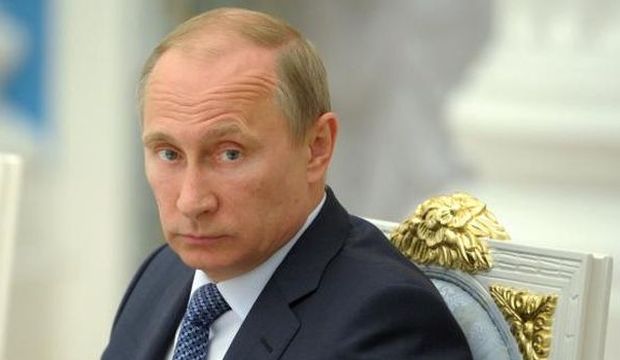Fate has decreed that Mr. Vladimir Putin, the President of Russia—and everybody knows what Russia is— shares the same logic of Hassan Nasrallah, the leader of the Hezbollah militia. Both these men, who are involved one way or another with the fighting in Syria, the killing of its unarmed people, and intervening in the Arab state’s internal affairs against the will of millions of its people, are now lecturing us about the need for peaceful solutions and what is possible, right and wrong. But the Saudi Foreign Minister Prince Saud Al-Faisal in his letter to the Arab League Summit on Monday offered a brief response to the Russian provocation by saying: “When you are the problem, you cannot be part of the solution.”
Russian policymakers have forgotten that they are gradually veering away from international laws and establishing their own ones according to which they determine their foreign policy, which is at war with the whole world. Moscow is occupying parts of Ukraine with the force of arms and supporting a regime that has lost its legitimacy in Syria while at the same time, and under the pretext of peaceful solutions, wants to give the Houthi militias a chance to wreak havoc in Yemen in a scenario similar to Hezbollah’s involvement in Syria. This is simply the inverted logic of Putin and his administration.
Moscow wants for the situation in Yemen to be similar to that in Syria: An illegitimate Houthi-led regime that is occupying the country while being supported by foreign powers—Russia and Iran—and operated from a foreign capital.
How would President Putin explain the occupation of an entire country, the detaining of its president and prime minster, the abolishing of all state institutions, and the control of the military by a militia? This is not to mention Iran’s supply of weapons and military equipment carried out through 14 direct flights from Tehran to Sana’a per day. This is exactly what Tehran and Moscow have been doing with Bashar Al-Assad’s regime in Syria. Before he calls for peaceful solutions, one wonders whether in the first place Putin has stopped supplying the Syrian regime with weapons to kill the Syrians.
To realize the sheer contradictions of Russian foreign policy, unprecedented in the history of this former superpower, one should read what Russia’s special evoy to the Middle East, Deputy Foreign Minister Mikhail Bogdanov, told the Russian state news agency RIA Novosti recently.
“Russia opposes interference in the internal affairs of sovereign states and emphasizes the necessity of stopping the use of force by all parties and calls for ceasefire, stopping shelling, and the exchange of attacks and sitting on the negotiating table.”
Let’s compare this lofty statement to the Russian position in Syria and Ukraine. The world’s nations are fed up with the disparity between theory and practice, something which Russia masters.
No observer can avoid the link between the Russian–Iranian coordination which started in Syria and will now not stop in Yemen, and its consequences for Iranian interests in the region, as has been seen in its stance towards Operation Decisive Storm. It is hard to separate between Russia’s concerns over the consequences of Iran’s diminishing influence in Yemen and the outcome it may have on nuclear talks. Both countries, Russia and Iran, aim to haggle with Arab Gulf states over several issues. This is not to mention that Russia has found itself in a position where it is considered an ally of Iran-affiliated Shi’ite powers against other Sunni ones.
Even if Russia was a major country of significance and indispensable value to the countries of the region, the clash of interests between Moscow and those countries, and its close link to Iranian interests, will not allow it to be trusted in the future. This is at least the case for Gulf States.
